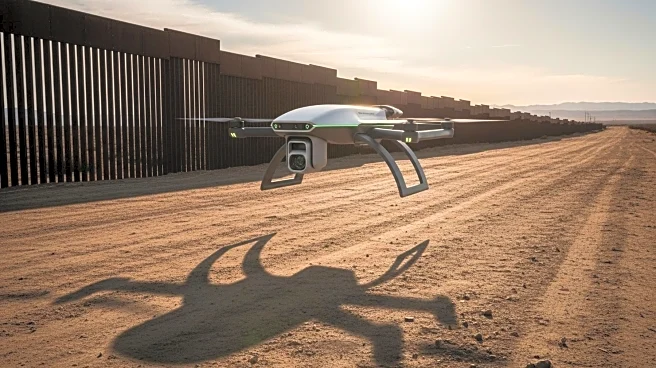What's Happening?
The Trump administration is significantly increasing its use of artificial intelligence (AI) in immigration enforcement. This initiative involves deploying AI algorithms to analyze extensive records, flag potential violations, and prioritize leads, thereby expediting processes that previously relied on manual reviews. The new system, ImmigrationOS, consolidates various tools into a single interface, enabling agents to approve raids, book arrests, generate legal documents, and manage deportation processes efficiently. This system draws from non-immigration data sources, such as Suspicious Activity Reports and financial transactions flagged under the Bank Secrecy Act, traditionally used in counterterrorism and anti-money laundering cases. Critics have raised concerns about the potential for bias, overreach, and reduced human oversight due to the reliance on opaque algorithms.
Why It's Important?
The expansion of AI in immigration enforcement by the Trump administration has significant implications for privacy and civil liberties. The use of AI to guide enforcement actions rather than merely support decision-making raises concerns about accountability and oversight. The integration of AI tools into immigration processes could streamline operations but also risks sidelining human judgment in favor of algorithmic speed. This development could affect individuals targeted for deportation, potentially leading to increased arrests and deportations. The reliance on AI and a primary vendor like Palantir also raises issues of vendor lock-in and decentralization of authority, as officers on the ground gain direct access to AI tools.
What's Next?
The deployment of ImmigrationOS is set to begin, with the Department of Homeland Security (DHS) using the system to enhance immigration enforcement. As AI tools become more embedded in enforcement actions, there may be calls for increased oversight and transparency to ensure that civil liberties are protected. Stakeholders, including civil rights organizations and immigration advocates, may push for regulations to address potential biases and overreach in AI-driven enforcement. The administration's focus on ramping up arrests could lead to further debates on the ethical use of AI in government operations.
Beyond the Headlines
The use of AI in immigration enforcement highlights broader ethical and legal questions about the role of technology in government operations. The shift towards AI-driven decisions in enforcement actions could set a precedent for other areas of public policy, raising concerns about the balance between efficiency and human oversight. The integration of AI tools into immigration processes may also influence public perception of technology's role in society, prompting discussions on privacy, accountability, and the potential consequences of algorithmic decision-making.











